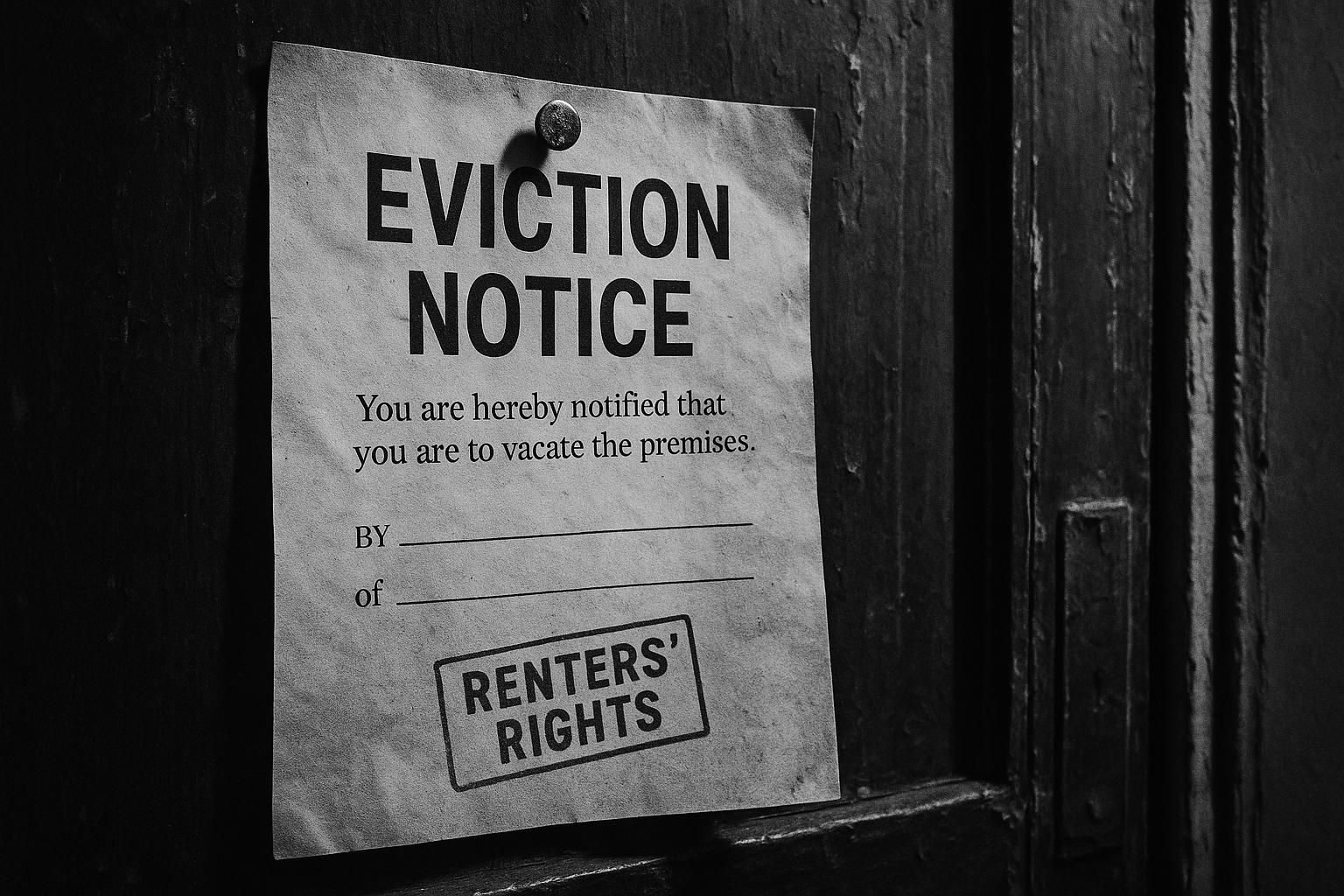The incoming Renters’ Rights Bill promises sweeping measures — from the Decent Homes standard to a landlord ombudsman and a national database — but recent cases involving MPs and council stock reveal inconsistent enforcement. Campaigners and industry figures say statutory reporting and a single, transparent regulatory framework are now essential to end the appearance of two sets of rules and restore public trust.
The gulf between the standards imposed on private landlords and the way some councils manage their own housing stock has been thrown into sharp relief by recent headlines — and by the timing of a major overhaul of renters’ rights. The Renters’ Rights Bill promises sweeping changes for tenants, from abolishing no‑fault evictions to creating a landlord ombudsman and a national database, yet the controversy surrounding how local authorities police (and live up to) those standards shows why a single, transparent regulatory framework that applies to every landlord is now indispensable. According to the government’s guide to the bill, the reforms also include application of the Decent Homes Standard, strengthened enforcement powers and new routes for tenants to challenge excessive rent rises, all measures that will shift the regulatory landscape for landlords and councils alike.
High‑profile cases have crystallised public unease. The episode involving Rushanara Ali, the former minister for homelessness, illustrated the political and practical tensions landlords will face as rules change. Reporting described how Ms Ali was criticised for evicting tenants from a property she owned and re‑letting it at a substantially higher rent — a sequence that prompted calls for resignation and intense scrutiny amid debate on landlord conduct. That controversy has been situated explicitly against the backdrop of the incoming Renters’ Rights Bill, reinforcing wider questions about political accountability and the expectations placed on those who both make and rent property.
Parallel stories of MPs who are themselves landlords have compounded the sense of a double standard. Investigation into the private blocks owned by Labour MP Jas Athwal found problems including black mould, ant infestations and fire‑safety and communal upkeep defects; the MP acknowledged shortcomings, sacked a managing agent and apologised. Such cases feed a public narrative that while private landlords are subject to heavy enforcement, elected representatives and local authorities are not always held to the same standard in practice.
That perception is worsened when councils that prosecute private landlords are shown to have persistent disrepair in their own stock. Some boroughs have been praised for vigorous enforcement: one local authority’s anti‑rogue landlord activity has reportedly led to fines and penalties running into the hundreds of thousands. Yet legal claims from council tenants alleging long‑running rat infestations, damp and sewage problems underline the unevenness of outcomes when local authorities act simultaneously as regulator and landlord. The juxtaposition of aggressive enforcement in the private sector and alleged neglect in social housing is central to the argument that transparency and consistent rules are required.
The Renters’ Rights Bill itself will reshape the obligations on landlords and the tools available to councils. The government guidance sets out a replacement for assured shorthold tenancies with periodic assured tenancies, new possession grounds, limits on rent increases and measures to curb rental bidding and discrimination. It also envisages improved tribunal processes for tenants, protections on pets and lower requirements for rent in advance. For private landlords, these changes bring new compliance expectations — and, as industry representatives have warned, uncertainty about the costs and practicalities of measures such as a national database and a private rented sector ombudsman.
Calls for reform of licensing and inspection practice are already emerging from within the sector as pragmatic alternatives to blanket approaches. A model used by one city council offers a useful example: landlords who commission accredited private surveyors to certify compliance can qualify for reduced licence fees and more predictable inspection timetables, while the council reduces its inspection burden. Advocates say this approach produces earlier inspections, clearer cost‑sharing and a schedule that is often completed before a property is even tenanted — an outcome that would reduce disputes and focus enforcement resources where the risk is greatest.
What now matters is not merely tougher rules, but consistent and accountable application of them. The argument advanced by landlord representatives is that the Renters’ Rights Bill should be accompanied by statutory requirements for councils to report on enforcement activity, and for all social and private landlords to be held to the same Decent Homes‑style standards. Until an impartial, transparent system is in place — one that removes the appearance of two sets of rules and clarifies costs and responsibilities for landlords and authorities alike — public trust in housing enforcement will remain fragile and many tenants, whether in private rented homes or council accommodation, will continue to endure unsafe or unhealthy living conditions.
 Reference Map:
Reference Map:
Reference Map:
- Paragraph 1 – [1], [2]
- Paragraph 2 – [1], [3]
- Paragraph 3 – [1], [4]
- Paragraph 4 – [1], [5], [6]
- Paragraph 5 – [2], [1]
- Paragraph 6 – [1], [7]
- Paragraph 7 – [1], [2]
Source: Noah Wire Services
- https://www.property118.com/one-rule-for-landlords-another-for-councils/ – Please view link – unable to able to access data
- https://www.gov.uk/government/publications/guide-to-the-renters-rights-bill/guide-to-the-renters-rights-bill – The GOV.UK guide to the Renters’ Rights Bill explains proposed reforms to private renting in England. It sets out abolition of section 21 no‑fault evictions, the introduction of periodic assured tenancies, new possession grounds and limits on rent increases. The guide describes a Private Rented Sector Landlord Ombudsman, a national landlord database, application of the Decent Homes Standard, strengthened enforcement powers for local authorities and measures to prevent rental bidding and discrimination. It also details tenants’ rights on pets, reduced rent-in-advance requirements and improvements to tribunal procedures to allow tenants to challenge excessive rent rises and outlines implementation timescales carefully.
- https://www.theguardian.com/politics/2025/aug/07/uk-homelessness-minister-rushanara-ali-faces-calls-to-resign-over-tenant-eviction-claims – The Guardian reports that Rushanara Ali resigned as minister after allegations she evicted tenants from a property she owned and re‑let it shortly afterwards at a substantially higher rent. The piece describes the timing of the relisting, the scale of the rent rise and the political backlash, noting criticism from opposition parties and housing groups. It situates the episode within the broader context of the incoming Renters’ Rights Bill and debates about landlord conduct, political hypocrisy and conflicts of interest. The article includes statements from Ali and party figures and notes calls for accountability amid rapid policy change and scrutiny.
- https://www.bbc.co.uk/news/articles/crkm15z1r82o – BBC reporting revealed that Labour MP Jas Athwal owns multiple rental flats that tenants said contained black mould, ant infestations and other disrepair. The investigation found dirty communal areas, faulty lighting and loose fire alarms in a block of flats in Ilford, and tenants described repeated cleaning of mould and insects affecting children. Athwal acknowledged the problems, sacked the managing agent and apologised, admitting some licences were not in place despite earlier assurances. The coverage highlighted concerns about MPs who are landlords, the standards of privately let housing and the need for robust enforcement and licensing to protect tenants’ health.
- https://www.investforproperty.co.uk/landlords/fines-issued-to-rogue-landlords-in-brent-total-more-than-500000/ – The Invest for Property report summarises Brent Council’s enforcement activity, noting that fines issued to rogue landlords in the borough have exceeded £500,000 since increased action began. The article describes prosecutions, civil penalties and regular raids undertaken by council enforcement teams within the borough’s licensing regime. It quotes council officers emphasising a zero‑tolerance approach to unlicensed or dangerous rentals and highlights high fines for overcrowding, fire safety breaches and infestations. The piece is a landlord‑sector account of local enforcement and illustrates how active councils can be in policing private landlords through licensing, inspections and court actions to protect tenant safety.
- https://www.standard.co.uk/news/london/rat-infested-council-house-brent-neasden-b1241537.html – The Evening Standard reports that a mother has begun legal action against Brent Council over alleged long‑running disrepair in a council house described as rat‑infested, damp and suffering sewer damage. The article details the resident’s claims that repeated reports since 2022 were ignored and that pest control deemed the property uninhabitable. It highlights the impact on the family’s health and wellbeing and quotes the claimant on feeling depressed and neglected. The story underlines concerns about some council landlords’ failure to maintain stock, the use of legal proceedings when repairs are not made and calls for faster intervention to protect tenants.
- https://www.southampton.gov.uk/housing/landlords/houses-multiple-occupation/licence-fees/ – Southampton City Council’s HMO licence fees page explains the council’s licensing approach and details an independent surveyor route offering reduced fees for landlords who obtain compliance certificates from accredited surveyors. The guidance states timely compliant applications qualify for a lower rate if the surveyor is a member of RICS or CIEH and holds insurance. It outlines the council’s inspection arrangements and explains fees are split into stage one payable on application and stage two on award. The page shows a model that permits private surveyors to certify compliance and so reduce the council’s inspection burden and provides certainty for landlords.
Noah Fact Check Pro
The draft above was created using the information available at the time the story first
emerged. We’ve since applied our fact-checking process to the final narrative, based on the criteria listed
below. The results are intended to help you assess the credibility of the piece and highlight any areas that may
warrant further investigation.
Freshness check
Score:
10
Notes:
 The narrative is fresh, published on 12th August 2025, with no evidence of prior publication or recycled content. The report is based on recent events, including the resignation of Rushanara Ali, the former Minister for Homelessness, on 7th August 2025, following allegations of evicting tenants and increasing rent. ([irishtimes.com](https://www.irishtimes.com/world/uk/2025/08/07/uk-homelessness-minister-resigns-after-tenant-eviction-claims/?utm_source=openai))
The narrative is fresh, published on 12th August 2025, with no evidence of prior publication or recycled content. The report is based on recent events, including the resignation of Rushanara Ali, the former Minister for Homelessness, on 7th August 2025, following allegations of evicting tenants and increasing rent. ([irishtimes.com](https://www.irishtimes.com/world/uk/2025/08/07/uk-homelessness-minister-resigns-after-tenant-eviction-claims/?utm_source=openai))
Quotes check
Score:
10
Notes:
 No direct quotes are present in the narrative, indicating original content without reused statements.
No direct quotes are present in the narrative, indicating original content without reused statements.
Source reliability
Score:
8
Notes:
The narrative originates from Property118, a platform associated with the iHowz Landlord Association. While it provides industry insights, its credibility may be considered lower compared to mainstream media outlets.
Plausability check
Score:
9
Notes:
 The claims align with recent events, such as the resignation of Rushanara Ali and the introduction of the Renters’ Rights Bill. However, the narrative’s tone and focus suggest a perspective that may not be fully objective, potentially reflecting the interests of private landlords. ([irishtimes.com](https://www.irishtimes.com/world/uk/2025/08/07/uk-homelessness-minister-resigns-after-tenant-eviction-claims/?utm_source=openai))
The claims align with recent events, such as the resignation of Rushanara Ali and the introduction of the Renters’ Rights Bill. However, the narrative’s tone and focus suggest a perspective that may not be fully objective, potentially reflecting the interests of private landlords. ([irishtimes.com](https://www.irishtimes.com/world/uk/2025/08/07/uk-homelessness-minister-resigns-after-tenant-eviction-claims/?utm_source=openai))
Overall assessment
Verdict (FAIL, OPEN, PASS): OPEN
Confidence (LOW, MEDIUM, HIGH): MEDIUM
Summary:
 The narrative is fresh and original, with no evidence of recycled content or reused quotes. However, it originates from a platform with potentially lower credibility, and its tone suggests a perspective that may not be fully objective. Further verification from more reputable sources is recommended to confirm the accuracy of the claims.
The narrative is fresh and original, with no evidence of recycled content or reused quotes. However, it originates from a platform with potentially lower credibility, and its tone suggests a perspective that may not be fully objective. Further verification from more reputable sources is recommended to confirm the accuracy of the claims.













